Collection Motivic homotopy in interaction / Homotopie motivique en interaction
A1-homotopy first appeared in the 1993 PhD thesis of Voevodsky as an approach to Beilinson’s conjectural framework of motives. The domain then exploded during the attempts of Voeovdsky to prove the Milnor conjecture, leading to the now well established theory of Morel and Voevodsky, sometimes called motivic homotopy because the conjectural theory of Beilinson has found a beautiful homotopical interpretation, perfectly analogous to the place of singular homology and ordinary spectra in topology. The internal development of motivic homotopy have grown in the last years in several direction, from fundamental results such as the six functors formalism, duality, framed correspondences, cohomological orientation theories to the computational tools such as Morel’s quadratic degree, characteristic classes, Chow-Witt groups and hermitian K-theory. Meanwhile, applications of motivic homotopy are growing. An ongoing excitement comes from many directions of interactions where motivic homotopy serve as a powerful tool to find analogy and build bridges. The possibilities are immense, ranging from topology, differential geometry, real algebraic geometry, algebraic cycles and arithmetic. The purpose of this conference is to reinforce these interactions, bringing together specialists both of motivic homotopy and of closely connected areas, and to offer the possibility to your researchers and students to participate and contribute to a stimulating atmosphere of exchanges, courses and research talks.
To this end, the conference program includes time slots dedicated to short 20-minute presentations at the initiative of participants, after selection by the scientific committee from the proposals received. Participants wishing to propose a contribution for a presentation of this type are invited to send a title and abstract to a1homotopy.cirm@ens-lyon.fr.
Organizer(s) Déglise, Frédéric ; Dubouloz, Adrien ; Fasel, Jean ; Morel, Sophie ; Østvær, Paul Arne
Date(s) 04/11/2024 - 08/11/2024
linked URL https://conferences.cirm-math.fr/3129.html











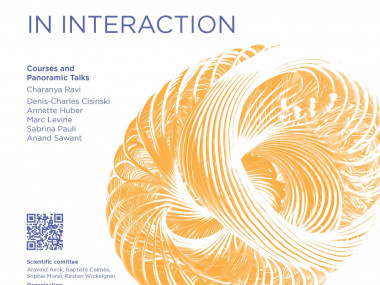
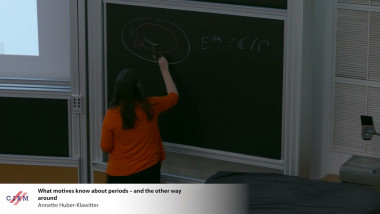
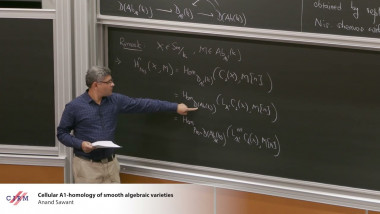
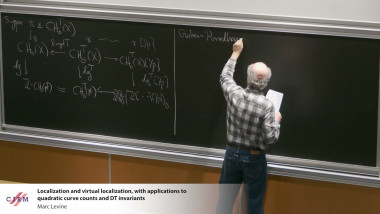

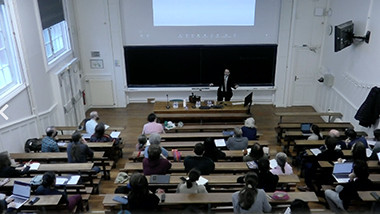
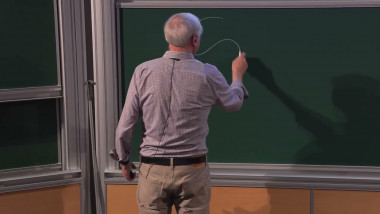
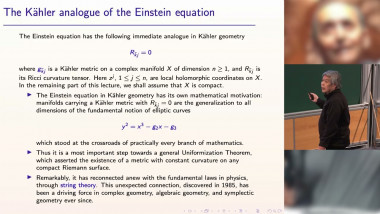
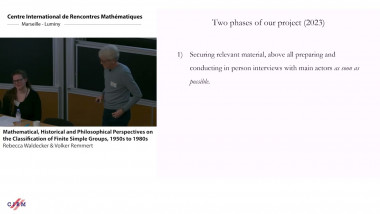
![[1242] Réfutation de la conjecture du télescope de Ravenel](/media/cache/video_light/uploads/video/SeminaireBourbaki.jpg)